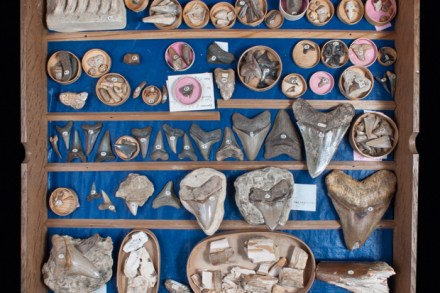The Old Man Comes Out With an Opinion
This long orchestral piece records a day the composer spent one summer meditating in Dibnah’s yard on the sounds of dereliction, or possibly the dereliction of sound: the settlement of rust, the flake and drift toward the earth of forged and hammered things, the creak of shiny flanges in the wind, and the occasional crash of martial metal as boys dribbled a biscuit box along between the ornamental tetanus hedges of Fred’s Versailles, parterres of ferrous oxide. Sometimes I wish that Fred’s new crush-compactor had crumpled the composer (violin solo) and his jalopy (piano, timpani) in one bright ingot, multicoloured foil (cymbals), and hoyed the lot in the canal (a



















